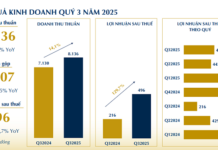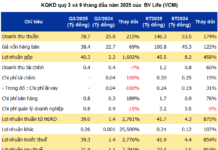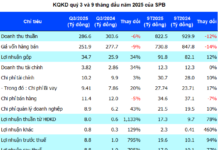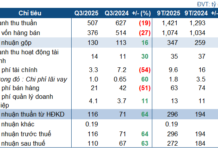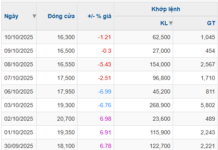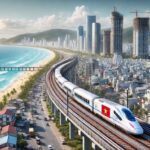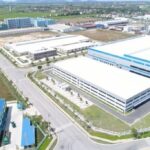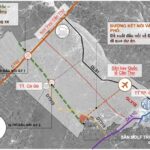The People’s Committee of Nghe An province has recently approved the Draft Program for Urban Development of Nghe An province by 2030, with a vision towards 2050.
According to the program, Nghe An aims to have approximately 40-45 urban areas by 2030, including: 1 Type I city, which is the expanded Vinh city; 2 Type III cities, including Hoang Mai and Thai Hoa; 2 Type IV/III towns, Dien Chau and Do Luong; 15 township capitals and 20-25 sub-regional townships. The urbanization rate of the province is expected to reach 34-36% by 2030, increasing to 40-45% by 2050.
By 2050, Nghe An envisions to have an urbanization rate that ranks among the higher-middle range in the country. The province aims to develop at least two leading cities in Vietnam, serving as key connectors and development hubs within the provincial, regional, and national urban networks.
The urban system of Nghe An will be developed in a synchronized, unified, interconnected, and balanced manner, both within and outside the region. This will foster strong connections between Nghe An and the North Central provinces, especially the central cities of the region and other urban areas.

Nghe An plans to gradually expand the development of key urban areas and regional cities, connecting the province’s urban network through a comprehensive, well-integrated, and closed infrastructure system. The expanded Vinh city will serve as the central nucleus, acting as a crucial growth pole for the province. It will be closely linked to the core central cities of the region, including Hoang Mai, Thai Hoa, Dien Chau, Do Luong, Quy Hop, and Con Cuong, forming a “backbone” to catalyze the development of the province’s urban system in a cohesive, sustainable, and multidimensional manner.
Additionally, urban development in Nghe An will embrace modernity, distinctiveness, and cultural richness. It will emphasize the region’s characteristic cultural elements, foster a spirit of innovation, and drive creative activities. The province aims to transform its urban areas into dynamic hubs that align with the model of green and smart cities, adapting to climate change, and enhancing disaster and disease prevention.
To achieve sustainable urban development, Nghe An will formulate focused programs, projects, and research topics. A pilot project, the “City of Lights” initiative for Vinh city, will be developed and implemented during the 2024-2025 period.
The program identifies a list of priority investment projects, estimates investment capital requirements, and outlines the sources of funding. It also categorizes groups of projects and solutions for capital utilization, prioritizing the implementation of the program and urban development initiatives. The total estimated capital requirement for Nghe An province’s urban development from now until 2030 is VND 97,187 billion.
The High-Speed Rail Network’s Urban Revolution: A City for Every Stop.
“The proposed high-speed North-South railway line is an ambitious and unprecedented infrastructure project in Vietnam’s public investment history, with an estimated total cost of nearly $70 billion. According to Deputy Minister of Planning and Investment, Tran Quoc Phuong, this project is set to be the largest of its kind, and each train station along the route will be accompanied by dedicated urban areas.”
The $540 Million Road Linking 3 Bridges and an Expressway Worth $2 Billion: Unveiling a Transportation Revolution
The Nguyen Van Cu – Ngoc Thuy road project is a key technical infrastructure investment for the city. This new road link provides a vital connection from the Dong Tru area to the Vinh Tuy and Thanh Tri bridges, seamlessly integrating with the Hanoi – Hai Phong highway.












